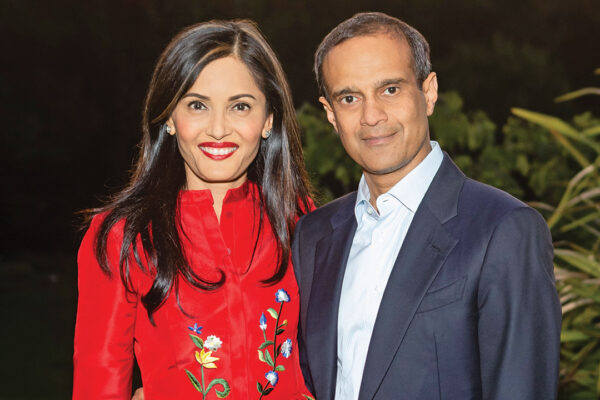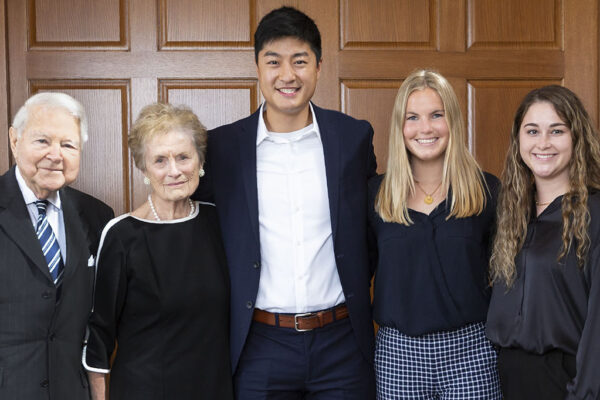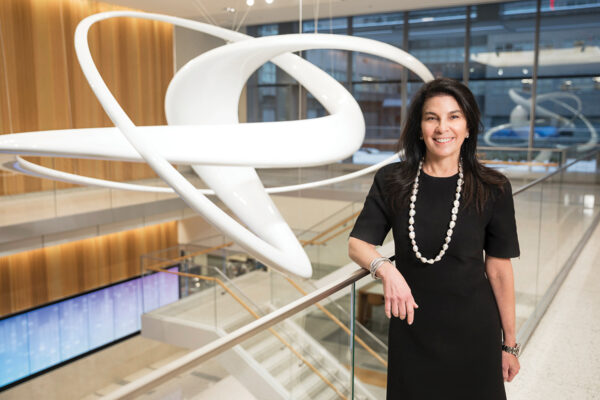David Ulevitch, AB ’04, believes that entrepreneurship is about two things: understanding how the world works and understanding how people work. “Ideas that address both tend to have the best outcomes,” he explains. A former anthropology major and entrepreneur, Ulevitch should know. He has founded and sold two enterprise companies — EveryDNS, a domain name system he launched as a WashU student, and OpenDNS, which Cisco Systems acquired in 2015.
Today, he is a general partner at Andreessen Horowitz, the storied venture capital firm in Silicon Valley. He focuses on enterprise software, as well as investments that promote what he and his colleagues call American dynamism, including those related to defense, national security, public safety, housing, education and more. Ulevitch also is an active alumni leader, having served in numerous volunteer capacities in the Bay Area and as a mentor to WashU grads.
How has your anthropology degree informed your career?
Ulevitch: I often joke that it has turned out to be way more useful than I expected, and it’s really true. Studying human behavior, different cultures and differences across communities has given me a broad worldview and made me more open-minded and curious.
Technology interacts with people. Understanding cultural nuance and what makes people different helps you build better companies, better teams and better products for your customers.
For example, one part of our business at OpenDNS was parental controls, which restrict children’s access to internet content. We quickly discovered that what a mother in Berkeley, California, considers inappropriate for kids varies significantly from the views of a mother in Salt Lake City or father in Boston. We can’t throw the same technology solution at everyone; we need to appreciate differences and think more broadly about how we solve problems. I really value the framework and grounding that anthropology gave me.
Describe making the switch from entrepreneur to investor.
Ulevitch: I never thought I wanted to be an investor because I love the thrill and satisfaction of operating a company. When I was running OpenDNS, I had mixed experiences with my investors, but one really became a mentor to me. Dave Strohm from Greylock Partners instilled in me a set of corporate governance controls and management behaviors that equipped me for long-term success as a leader.
When Ben Horowitz, the co-founder of Andreessen Horowitz, recruited me, he said, “If you come here, you can be the kind of investor you wish you had when you were an entrepreneur.” I got excited about filling that role for others and being the person whom entrepreneurs call when they’re having a tough moment or are at a strategic crossroads.
I joined Andreessen Horowitz in late 2018 because it offered an environment in which I thought I could be successful. Most of the partners are former founders or CEOs, which means we are good at working with entrepreneurs. We also are former managers, so the firm is very well-organized. While we do have guardrails in place, our firm allows partners independence in making investment decisions. I enjoy being able to own my decisions just as I did as an entrepreneur.
Why do you make time to engage with alumni?
Ulevitch: After graduation I moved to San Francisco and began attending young alumni events in the Bay Area. It was great to meet up with other WashU grads to tour a museum, have a meal or go to a ball game. I also served on a couple of alumni committees like the Alumni Board of Governors, which helped me feel connected to the university.
Not long after I got settled in California, I started getting emails from recent grads and students about to graduate. They would say, “Hey, you work with technology in the Bay Area. I want to come out there and join a startup or start a company.” I’d always try to take those meetings. It made me happy to see the alumni population growing in the area and to be connected to other alumni in the startup community.
Over the years, I’ve hired many WashU alumni or invested in their companies. They are smart and collaborative, and they make great team members and leaders. It feels like there is a WashU grad inside every successful startup I hear about these days.
Why does WashU matter to you?
Ulevitch: I am very grateful for my WashU experience, which was one of the most transformational of my life. The university offers a supportive and student-oriented environment where you can learn and grow as a person. I also gained lasting friendships. I will continue to do what I can as an advocate for the university to make sure that more and more people have the same opportunity and experience that I did.



